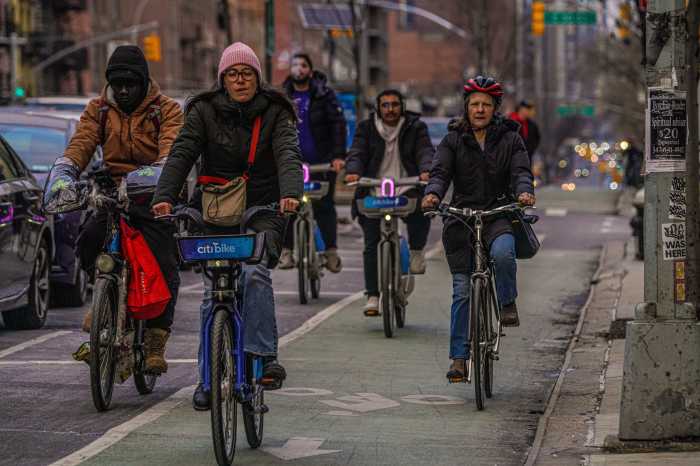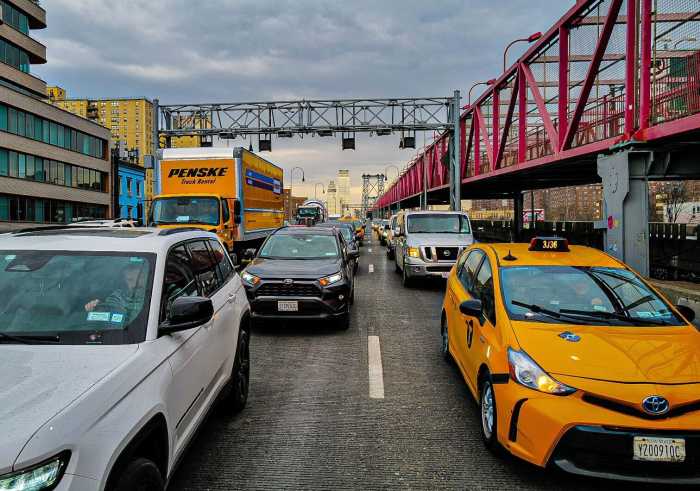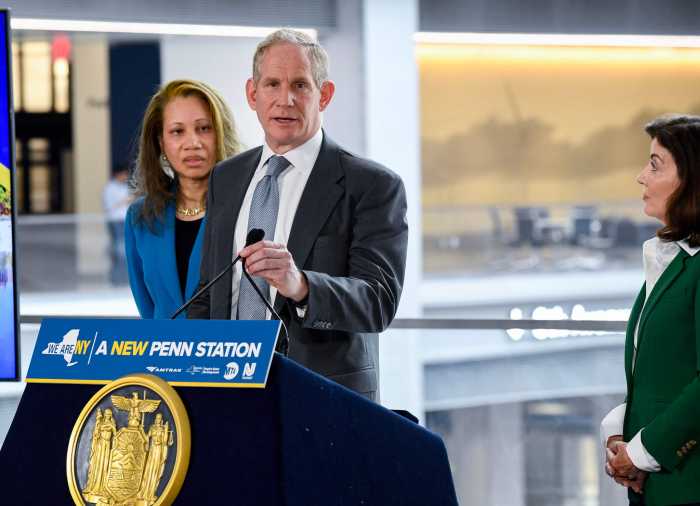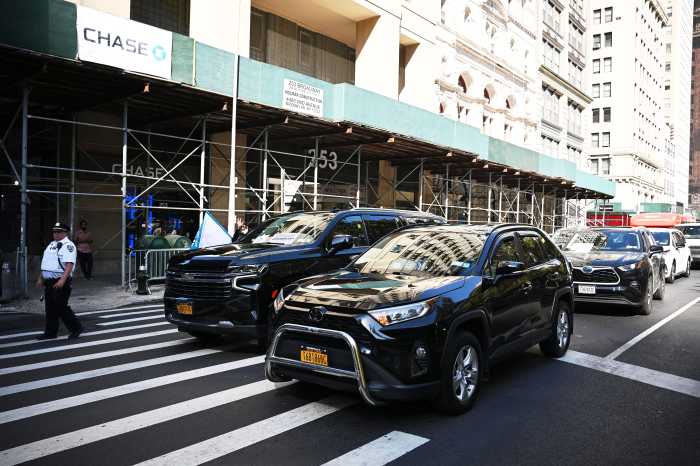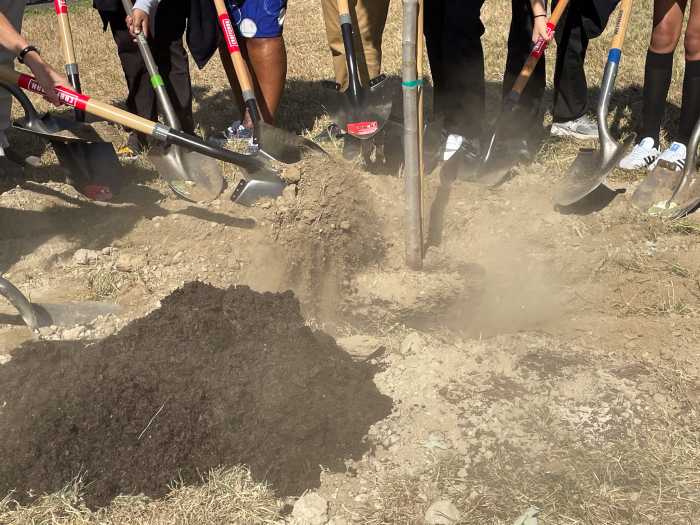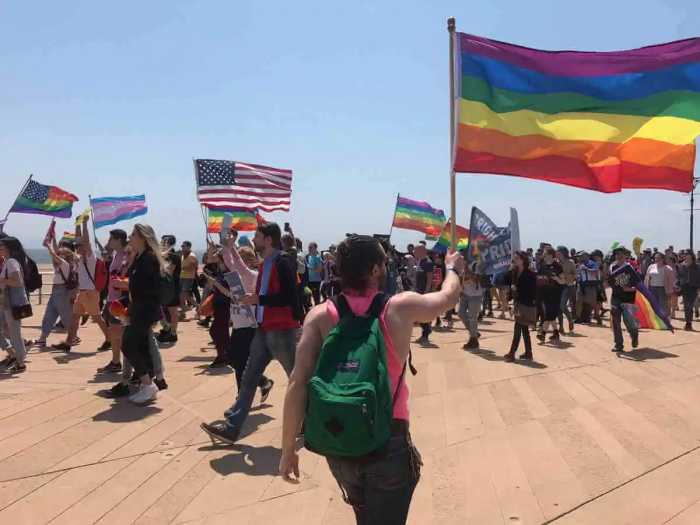
Fair Fares, the newly budgeted program to provide half-fare MetroCards to low-income New Yorkers, is expected to play an invaluable role in improving inequity in New York City.
Following the city’s agreement to include $106 million in funding to launch the program, advocates and elected officials rallied in Fulton Center Tuesday to celebrate the policy they say will improve the lives of New Yorkers who have to ask for MetroCard swipes or choose between riding the train or eating a meal.
“You can’t get ahead if you can’t get around,” said John Raskin, executive director of the Riders Alliance. “Fair Fares is an invaluable city program that’s going to help the most vulnerable New Yorkers access work and education and all the opportunity that comes in the City of New York.”
About 800,000 New York City residents living at or below the federal poverty level will be eligible for the program, which is expected to launch in January 2019. City Council Speaker Corey Johnson and Mayor Bill de Blasio — who initially resisted the city’s funding of the plan — have agreed to continue funding the program each year based on popularity.
Other cities, including Seattle and San Francisco, have launched similar programs that are now budget fixtures. Nancy Rankin, vice president of policy and research at CSSNY, said New York’s program will help set an example for cities like Chicago and Philadelphia to follow.
It was an emotional news conference Tuesday for advocates who have fought for years for the program. It was also personal for Johnson, who said his mother had to make tough financial decisions — choosing between a meal or gas money — when he was growing up in public housing. Johnson was the main driver in pushing for the inclusion of the policy in the city’s fiscal year 2019 budget.
“To watch the daily indignities that happen in our city, the mom standing with her 5-year-old child begging for a swipe to get on the subway, we want those days to be behind us,” Johnson said.
Several in attendance teared up as financially struggling New Yorkers shared their stories.
“In a city so rich, it’s crazy to think that many of us have to sacrifice basic necessities for a MetroCard to go to a job interview, a medical appointment, or our children’s schools,” said Darlene Jackson, a single mother from the southeast Bronx, who works as a part-time city employee.
The mayor’s administration still needs to work out details regarding how the MetroCard discount will be administered.
“That is the city we are all at work building — one where everyone is respected and everyone is honored,” de Blasio said. “And that’s what’s being achieved here today with this huge step forward for Fair Fares.”



